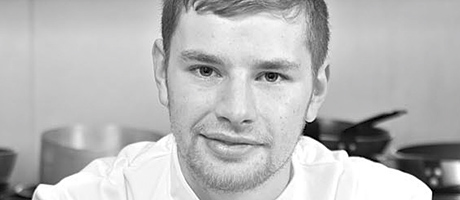Purchasing the right catering equipment is key, firms say
Kitchen appliances can be a costly investment for any enterprise, which is why it’s crucial to make the right purchase.
Catering equipment suppliers say there are several things to look out for when purchasing a new oven or fryer, as well as steps operators can take to protect their investment in the long-term.

Graham Kille, managing director of FRIMA UK, highlighted how important it is to make the right appliance purchase, as the opportunity to replace equipment “may only come around every ten years or so”.
“It’s the chance to future-proof your kitchen for the next ten to 15 years and to use modern flexible equipment to improve efficiency,” said Kille.
Nick Pendlebury, managing director of Pantheon Catering Equipment, agreed that making the right equipment purchase now can make a big difference to an outlet’s performance further down the line.
“New, reliable kit means that more menu items can be added and that customers will be happy and, hopefully, return.
“There is little point over-equipping a kitchen but investing in good quality equipment from a company with a reliable track record is advisable,” said Pendlebury.
Like any purchase, the potential profit for a business must be weighed against the cost of a new kitchen appliance and this can “vary hugely”, when it comes to ovens, said Kris Brearley of RH Hall.
“To help make the right choice, caterers must be clear on the intended use – the volume of throughput, the types of dishes/menu available, variations in service time, staffing skills – and should also research the latest features and operational functions before they invest,” said Brearley.
“Caterers should consider their equipment needs in line with current and future menu requirements.”
For ovens in particular, Mark Hogan of Foodservice Equipment Marketing said operators should purchase a model “that enables a variety of menu items to be executed perfectly, quickly and easily”, adding that an oven which ticks all these boxes could relieve some pressure on kitchens by spreading the load.
“Being able to smooth out peaks and troughs in demand, by allowing food to be cooked in advance and held at the perfect temperature for serving, is useful in busy catering operations,” said Hogan

For fryers, Steve Elliot of Valentine Equipment said operators should look for “robust construction, reliability, fast response and recovery, and of course a fryer that’s within budget”.
He added that the fryer “should be quick to heat up so that it is not necessary to turn the unit on a long-time before it has to operate”.
While the right kit can sort a kitchen in the short-term, it’s no use as an investment if it can’t go the distance, according to Linda Lewis, managing director of Linda Lewis Kitchens.
Lewis said longevity is a “key issue” for kitchen appliances and operators should focus on the cost “spread over the life of the piece of equipment” when making a purchase.
“Buying a cheap oven that will only last two or three years, will probably cost you much more, in the longer term,” she said.
Purchasing a reliable piece of kitchen equipment may be a good place to start, but Helen Applewhite, marketing manager at Lincat, reminded operators that they must maintain their appliances if they want to get the best return on their investment.
“Ovens and gas ranges must be serviced annually,” said Applewhite.
“You wouldn’t run a car without getting it serviced regularly and caterers should service their ovens once a year to keep them in tip-top condition.”
Simon Frost, chair of CESA, agreed on the importance of servicing and suggested that a planned preventative maintenance contract (PPM) could be the “ideal solution” for an on-trade outlet.20
“This is designed to keep equipment in optimum condition by sorting any problems before they get critical,” said Frost.
“It also minimises ‘down time’, because equipment is much less likely to break down when it is looked after properly.
“The frequency of service depends on the equipment – in most (but not all) cases, two services a year should be enough. An added bonus is that if there is an unexpected problem, then the service provider will come and fix it.”























